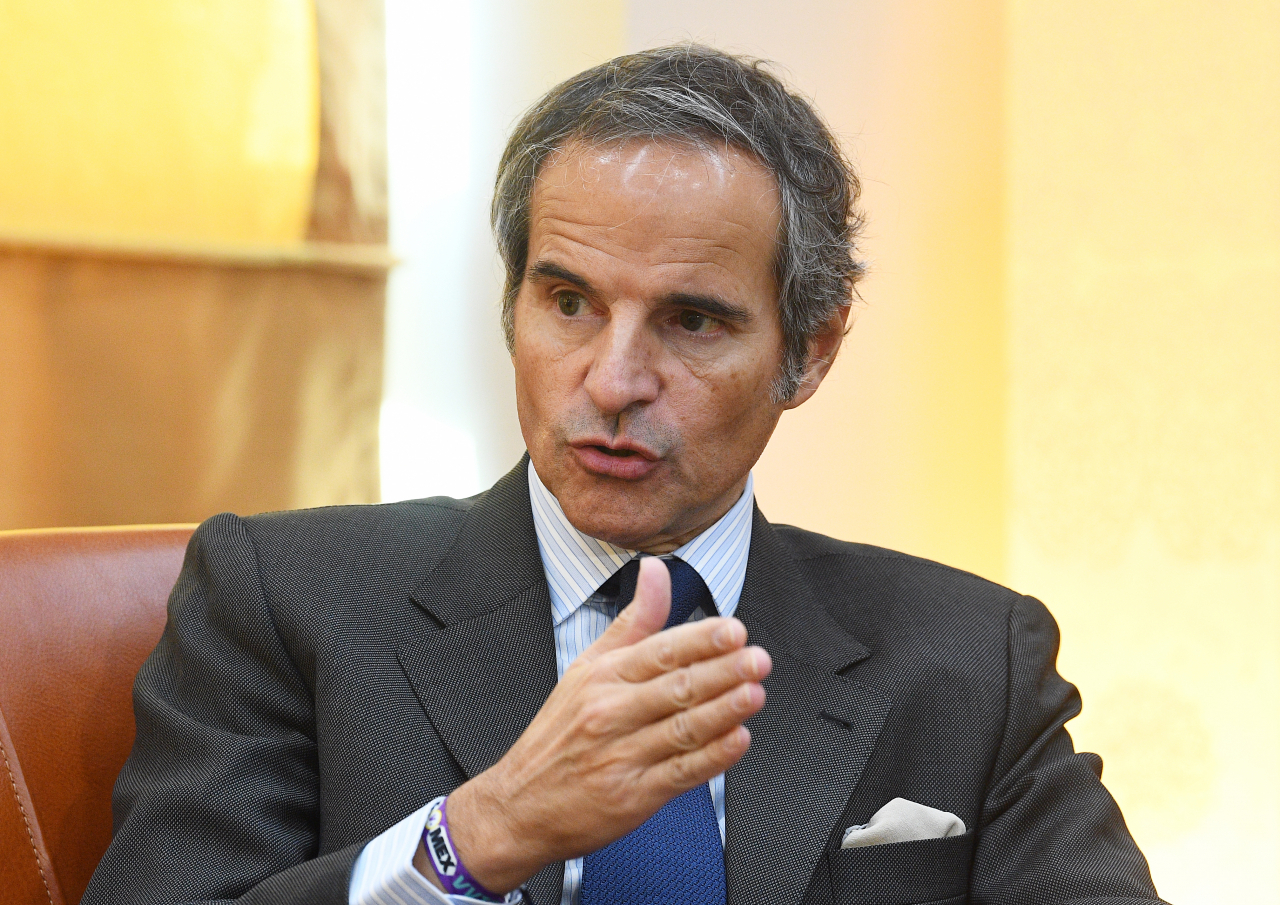 |
Rafael Grossi, director general of the International Atomic Energy Agency, speaks during a press conference at the Ministry of Foreign Affairs headquarters in Seoul on Friday. (Yonhap) |
The International Atomic Energy Agency can provide a platform to help bring North Korea back to nuclear talks because resuming dialogue is “indispensable,” UN nuclear watchdog chief Rafael Grossi said Friday, hours before finishing his three-day trip to Seoul.
“I am also persuaded that the IAEA can play a constructive role in this regard. Of course, it’s in the hands of the Republic of Korea, and of course, naturally the Democratic People’s Republic of Korea as well,” Grossi told reporters, referring to South and North Korea’s official names, respectively.
The IAEA chief stressed that his agency had picked up activity pointing to Pyongyang’s preparations for its first nuclear test since 2017, when it also revealed an intercontinental ballistic missile capable of reaching any part of the US.
Grossi said sending IAEA inspectors back to the isolated country was an option. North Korea, which expelled the group in 2009, has since largely pursued a military buildup rather than economic incentives in exchange for denuclearization -- except for the short-lived inter-Korean detente in 2018 when the two Koreas held summits. The two Koreas failed to live up to the peace proposals made there.
Meanwhile, the nuclear chief said his agency will fully address safety concerns floated over Japan’s decision to release contaminated water from the Fukushima nuclear power plant. The facility, crippled by a massive earthquake and tsunami in 2011, is adding to unease between Tokyo and Seoul, a neighboring country that will have to directly deal with repercussions from potential radiation exposure.
But Japan dismisses such worries, citing the water will be diluted enough before disposal, which is set to take place in stages as early as April next year.
Grossi highlighted “transparency” in making sure the waster does not pose health risk to any country, noting his agency would not condone “tempering” or “adulterating” information involving the agency’s work on the Fukushima plant.
“So we are sending samples of the water that we are taking there and we will be sending samples to this laboratory and other laboratories,” Grossi said referring to efforts to test the Fukushima water by calling in experts from around the world.
Last month, the IAEA sent a group of experts to the Fukushima plant as part of an inquiry to settle the dispute over safety worries. The group, which includes South Korean scientists, will publish its assessment early next year.







